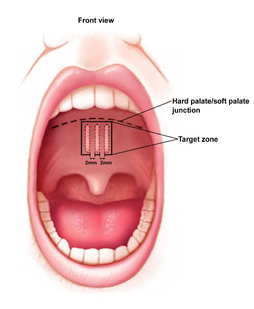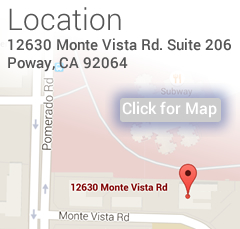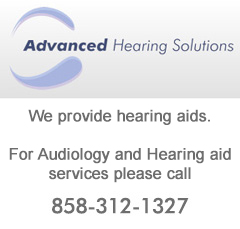Sleep Apnea Treatment in Poway, San Diego
One of the things that we at Rancho ENT are called upon rather frequently for is the management of snoring. While some might find it somewhat laughable to think of seeking medical treatment for a social taboo, you may be surprised to learn snoring can be a sign of serious diseases to come if not only a source of social isolation. Distinguishing snoring from obstructive sleep apnea, the actual prolonged cessation from breathing while sleeping from throat tissue collapse is an important delineation that needs to be made. Snoring typically results from vibration of normal tissues in the throat as air passes through it. During the daytime, our muscles are awake and this keeps the throat open so that this vibration does not occur. When we go to bed at night, particularly during the deep stages of sleep, a relaxation of most of the body’s muscles will occur, including those around your throat. Gravity is now allowed to let mobile tissues in the throat, namely the palate and the back portion of the tongue, to drop backwards. As the air passes through the throat, the mobile tissues will vibrate and make the snoring sound. Taken to the extreme, if you snore and your throat collapses for a prolonged period of time, you will periodically stop breathing. In medical terms, going without breathing is called apnea- hence “sleep apnea”.
What are the long-term effects of sleep apnea?
Sleep apnea is a more serious problem. If you periodically stop breathing whenever you go into the deep stages of sleep, your body and brain are obligated to keep you breathing, hence limiting the time you can actually stay in the deep stages of sleep. Unfortunately, the deep stages of sleep are the ones most needed for our body to get properly rested. Hence, sleep for a patient with sleep apnea restful, and a person with sleep apnea feels tired during the day despite sleeping at nighttime. Such a person tends to be sleepy during the day or even nod off when things are slow, because the body is craving sleep whenever it can. Despite spending additional time sleeping, they are still not getting rested because of the lack of deep stage sleep.
Why should I seek treatment for sleep apnea?
Untreated, sleep apnea can also lead to more serious long-term health problems. Because the person is chronically tired, they exercise less and gain weight with its concomitant medical issues. As the body goes without breathing at night during sleep, it also drops body oxygen levels, which over time cause the heart and lungs to work harder, which over time can lead to heart and lung difficulties. Furthermore, the additional weight gain factors back in to worsen the sleep apnea, setting up a vicious cycle. Many people function well enough despite their sleep apnea, and are unaware of the process going on at nighttime. The signs though are frequently present in their day to-day lives– the ongoing fatigue, feeling un-refreshed in the mornings, tendency to nod off during meetings, watching TV or movies, or in the extreme scenarios even drifting to sleep while driving. Frequently a spouse or significant other is the one to identify the problem, noticing the loud snoring with prolonged cessations of breathing while sleeping.
What causes snoring and sleep apnea?
The causes of snoring and obstructive sleep apnea can vary. In a heavier person, this may be the weight or laxity of throat tissues promoting collapse. In a person with large tonsils, it may be the tonsils themselves. If you have a long uvula (the dangly thing in the back of your throat), it may be vibrating or even collapsing with the palate while you sleep. Often, it is a combination of all of these things. Sometimes the tissues of the throat are fine, but the nose breathing passages are fundamentally small. If you have ever tried to drink a thick milkshake with a small straw before, you know the straw will collapse. Likewise, breathing through a narrow nose can be likened to pinching a straw, promoting collapse of tissues in the throat.
What are some effective treatments for snoring?

How is sleep apnea treated?
Treatment of obstructive sleep apnea and its separation from snoring alone requires a physician evaluation and possibly a sleep study. A sleep study is an assessment either in your home or in a sleep laboratory where monitors are placed on you to assess your stage of sleep, blood oxygen level, and frequency/rate of breathing to see if significant cessations of airflow are occurring. Treatment includes those things discussed above for snoring, in addition to the possibility of using a continuous positive airway pressure (CPAP) machine, which helps to maintain an open throat by application of air pressure through a facemask. Sometimes an oral prosthetic device can be fit to help improve the positioning of the tongue base. Surgical treatment options are also available, and this again needs to be tailored to the individual patient’s anatomy and disease severity. Modifications to the tissues of the throat or improvement of the nasal airway to decrease obstruction to air movement can frequently be achieved.
If you wish to learn more about snoring, sleep apnea, or their treatments, please contact your physician or contact our office at 858-674-1165.
SAN DIEGO RANCHO ENT IS A DIFFERENT KIND OF MEDICAL PRACTICE
At Rancho Ear, Nose and Throat we are a doctor’s office:
- Where we strive to keep you on time because we know your time is valuable.
- Where phone calls are answered by our helpful team members, not an automated system.
- Where our staff looks you in the eye when you walk in—and greets you by name.
- Where appointments last as long as it takes to answer all your questions.
- Where your doctor learns your history & works with you to create a treatment plan you are completely comfortable with.
- Where the focus is on you, not your paperwork.
- Where you are a person as well as a patient.






